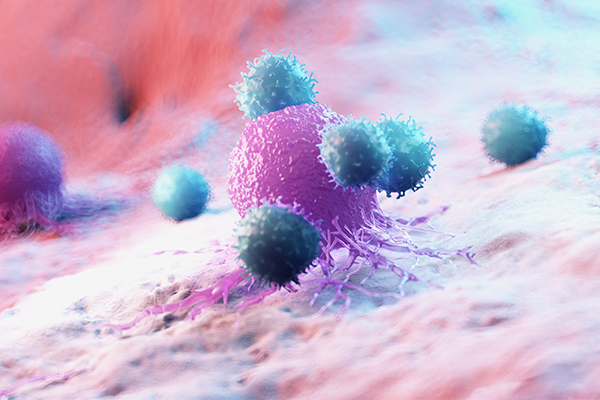Optimizing B7-H3-CAR-T Cells for Targeting Solid Tumors
In this webinar, Dr. Christopher DeRenzo from St. Jude's Children's Research Hospital presents a method to optimize and measure long lasting potency of T cells expressing B7-H3-CARs with varying transmembrane and costimulatory domains.
B7-H3 is actively being explored as an immunotherapy target for pediatric patients with solid tumors using monoclonal antibodies or T cells expressing chimeric antigen receptors (CARs).
Watch the webinar on demand to learn about:
- Current challenges with solid tumor immunotherapies
- How to optimize CD8α/CD28-CAR T cells to enhance their ability to kill tumor cells
- An effective method to measure serial killing in repeat stimulation assays with xCELLigence RTCA technology, and how to verify this in vitro data with in vivo studies
Abstract
B7-H3 is actively being explored as an immunotherapy target for pediatric patients with solid tumors using monoclonal antibodies or T cells expressing chimeric antigen receptors (CARs). B7-H3-CARs containing a 41BB costimulatory domain are currently favored by several groups based on preclinical studies. Here we initially performed a detailed analysis of T cells expressing B7-H3-CARs with different hinge/transmembrane (CD8α vs CD28) and CD28 or 41BB costimulatory domains (CD8α/CD28, CD8α/41BB, CD28/CD28, CD28/41BB). Only subtle differences in effector function were observed between CAR T-cell populations in vitro. However, CD8α/CD28-CAR T cells consistently outperformed other CAR T-cell populations in three animal models, resulting in a significant survival advantage. We next explored if adding 41BB signaling to CD8α/CD28-CAR T cells would further enhance effector function. Surprisingly, incorporating 41BB signaling into the CAR endodomain had detrimental effects, while expressing 41BBL on the surface of CD8α/CD28-CAR T cells enhanced their ability to kill tumor cells in repeat stimulation assays. Furthermore, 41BBL expression enhanced CD8α/CD28-CAR T-cell expansion in vivo and improved antitumor activity in 1 of 4 evaluated models. Thus, our study highlights the intricate interplay between CAR hinge/transmembrane and costimulatory domains. Based on our study, we selected CD8α/CD28-CAR T cells expressing 41BBL for early phase clinical testing.
About the Speaker
Dr. DeRenzo is a pediatric oncologist and joined the the Department of Bone Marrow Transplantation and Cellular Therapy at St. Jude Children's Research Hospital, where his goal is to develop and translate promising cell therapies from the laboratory into clinical trials for pediatric patients with solid tumors and brain tumors. Prior to joining St. Jude, he performed his general pediatric training at Case Western Reserve University/Rainbow Babies and Children's Hospital, and pediatric hematology/oncology training at Baylor College of Medicine/Texas Children's Cancer and Hematology Centers, where he stayed on as faculty until transitioning to his new position at St. Jude.
He grew up in Southern New Jersey, outside of Philadelphia, and never imagined living in Cleveland, Houston, or Memphis, but has enjoyed living in each of these great cities, and getting to know people from diverse parts of the US and all over the world.


